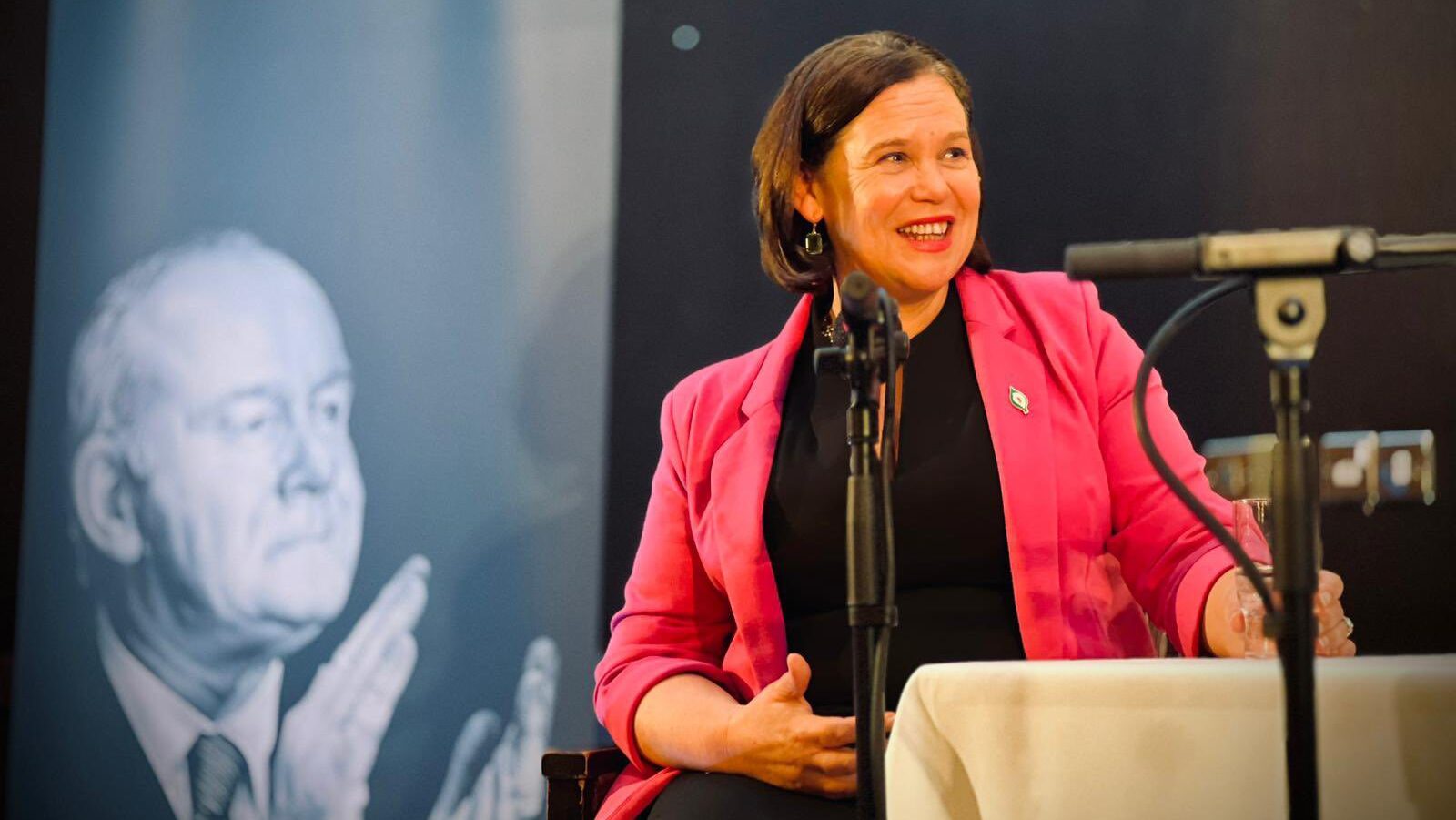
Sinn Féin leader Mary Lou McDonald
Photo: @MaryLouMcDonald on Twitter/X, 22 March, 2024.
The political tide appears to be turning in the Republic of Ireland after Sinn Féin, the country’s largest opposition party, reversed its stance on proposed hate speech laws aimed at curbing the rise of the populist right. Additionally, the left-wing party hinted at adopting a Danish-style approach in opposing new EU open border policies.
Last week, Sinn Féin, the former political wing of the IRA paramilitary group, was criticised by both the Left and the Right as it signalled that it would drop support for controversial hate speech legislation that would see those convicted face up to five years in prison. This comes despite previous support for the very same legislation in the Irish Parliament.
Sinn Féin is likely to lead a left-populist government after the next Irish election, but it has been rocked by recent grassroots protests in opposition to mass migration. Many pundits are linking the protests to a decline in electoral support for the party, particularly among its working-class base.
Despite previously supporting pro-migration policies, Sinn Féin TD (MP) Pa Daly was quick to emphasise that his party was “opposed to open borders.” He went on to say “We believe that Ireland needs a well-managed migration system” in relation to planned changes to EU asylum laws. This came after the party announced earlier this week that it would reverse its position on these laws.
Irish politics is changing fast. Last week, Dublin’s globalist elite were left spinning after the sudden resignation of centrist Taoiseach (Prime Minister) Leo Varadkar, and the country’s prospective new leader, Simon Harris, faces an uphill battle to be officially crowned his successor. Meanwhile, on Thursday morning, authorities arrested multiple suspects in relation to a string of arson attacks on asylum centres.
Sinn Féin’s change of heart on hate speech legislation means that the Republic will likely be without UK-style hate speech laws this side of a general election.
Parties further to the left of Sinn Féin were quick to criticise the shift, with Labour leader Aodhán Ó Ríordáin claiming the party was taking cues from the populist right.
The EU asylum pact, which aims to standardise asylum policy across the bloc and imposes fines on non-compliant member states that don’t accept a quota of refugees, is fast becoming a hot topic in Ireland, with Sinn Féin’s declaring, “We simply do not have enough beds in our [asylum] system to continue accommodating people who should be in other EU countries.“
The party said it would also oppose many of the planned asylum measures at both the EU and the Irish level. It also raised hopes of Ireland using a special clause codified into various EU treaties that allows it to opt out of certain migration legislation, similar to Denmark.
So far, independent and non-aligned politicians appear to be the primary beneficiaries of the backlash against out-of-control migration in Ireland, with the centrist Fianna Fáil party witnessing a slew of defections of local councillors over the issue.
Speaking to The European Conservative, rural Fianna Fáil representative Councillor Noel Thomas, who left the party after having his house raided by police following an arson attack on a local asylum centre, said the Irish government “was desperate to try and silence those opposers of their reckless migration policies,” adding that it was “shocking what was happening to this country” in relation to heavy-handed tactics being deployed against those critical of asylum numbers.
After a decade of liberalisation, the Republic looks to be, rhetorically at least, shitting to the right, with senior members of the ruling Fine Gael party warning that the party had veered too far to the left and needed to listen more to the mainstream on migration and asylum issues.
